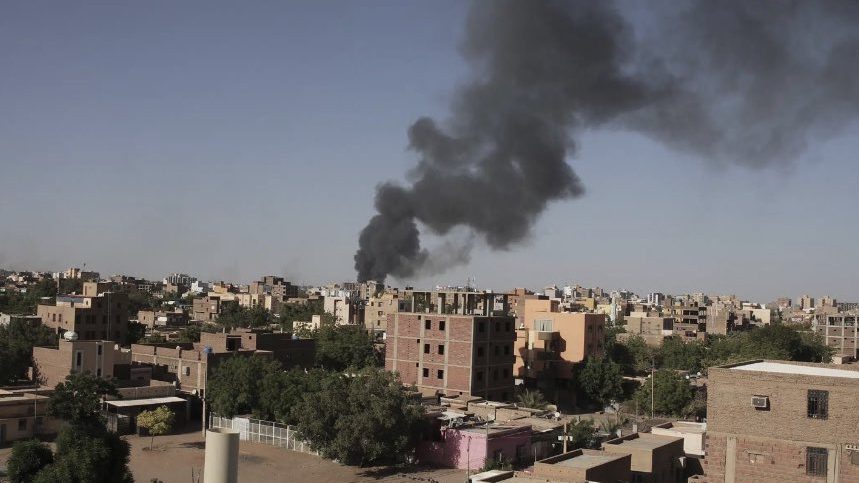The United Nations says at least more than 400 people have been killed and more than 3,500 injured in the ongoing fighting.
Qatar has evacuated its citizens from Sudan as intense fighting enters its second week, local press Al Liwaa reported on Sunday, citing a statement from a spokesperson from Qatar’s Ministry of Foreign Affairs(MOFA).
“All Qatari citizens in Sudan have been evacuated,” MOFA spokesperson Majed bin Mohammad Al Ansari said, without mentioning a specific number.
The announcement came after the Saudi Ministry of Foreign Affairs confirmed on Saturday that 91 of its citizens had been evacuated, along with 66 nationals from 12 other countries which included Qatar, the United Arab Emirates, Egypt, Tunisia, Pakistan, India, Bulgaria, Bangladesh, the Philippines, Canada, and Burkina Faso.
However, the kingdom did not provide an exact breakdown of how many evacuees came from each of the countries it listed.
Al Ansari explained, in a local press statement that “all Qatari citizens who were in Khartoum during the past days were evacuated to Port Sudan and from there to Jeddah (western Saudi Arabia).”
The top Qatari official also emphasised Qatar’s eagerness for an immediate ceasefire in Sudan and stressed the need to for a peaceful solution and dialogue to support regional and international efforts to resolve the crisis through diplomatic means, local press Al Liwaa reported.
More than 420 people have been killed and 3,700 injured in the fighting between the army and Rapid Support Forces (RSF) paramilitary group World Health Organization (WHO) reported on Saturday.
The UN says civilians are increasingly fleeing areas hit by fighting, including Khartoum. Up to 20,000 refugees have arrived in neighbouring Chad, WHO added.
Fresh clashes between the two groups shattered a three-day ceasefire that was declared for the Muslim holiday of Eid on Saturday.
Live TV feeds on Sunday showed thick smoke hanging over the capital Khartoum with gunfire ringing out in some areas, a Reuters reporter said, as Sudanese civilians tried to flee and foreign countries attempted to pull out their nationals.
The warring sides accused each other of attacking a convoy of French nationals, both saying one French person was wounded. France’s foreign ministry, which had earlier said it was evacuating diplomatic staff and citizens, did not comment.
The army also accused the RSF of attacking and looting a Qatari convoy heading to Port Sudan. Doha released no immediate statement on any incident.
Fighting was reported in Khartoum on Saturday, with witnesses telling CNN fierce clashes were taking place in the vicinity of the presidential palace and the sounds of explosions and warplanes flying overhead could be heard.
Due to the closure of the airport and unsafe skies, many foreigners including embassy personnel, aid workers, and students in Khartoum and other parts of Sudan have been unable to leave the country.
On Saturday, Kuwait’s foreign ministry thanked Saudi Arabia for evacuating its citizens from Sudan to Jeddah.
However, the statement did not specify how many Kuwaiti nationals had been evacuated.
Meanwhile, President Joe Biden said the US was temporarily suspending operations at its embassy in Khartoum but remained committed to the Sudanese people, reiterating calls for a ceasefire.
The latest round of violence in Sudan is widely seen by critics as yet another coup attempt by the RSF, similar to one which took place in 2021. At the time, the junta placed Prime Minister Abdallah Hamdok and various other officials on house arrest before later releasing them.
The RSF emerged in 2013 from Janjaweed militias that were found complicit in crimes during the Darfur genocide in 2003.
At least 300,000 people were killed and around 2.7 million were displaced during the genocide.
In 2011, Doha sponsored a negotiation process that resulted in the Darfur Peace Agreement, which brought together the government of Sudan and the armed movements to end the six-year-long Darfur conflict.
Sudan has grappled with a fragile path to democratic rule since the overthrow of Omar Al Bashir during the 2019 revolution, with the joint civilian and military government struggling to control a dire economic and political situation in the country.
Then in December last year, Sudanese political parties and the military signed a deal that aimed to pave the way for a two-year civilian transition period, though its fate remains in question as the fighting continues.







